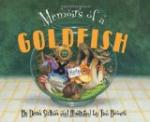Would the vision of me as I am to-day have inspired my grandfather to undergo, as cheerfully as he did, the privations and austerities of his long and arduous service as a country clergyman—or my father to die at the head of his regiment at Little Round Top? What am I—what have I ever done, now that I come to think of it, to deserve those sacrifices? Have I ever even inconvenienced myself for others in any way? Have I ever repaid this debt? Have I in turn advanced the flag that they and hundreds of thousands of others, equally unselfish, carried forward?
Have I ever considered my obligation to those who by their patient labors in the field of scientific discovery have contributed toward my well-being and the very continuance of my life? Or have I been content for all these years to reap where I have not sown? To accept, as a matter of course and as my due, the benefits others gave years of labor to secure for me? It is easy enough for me to say: No—that I have thought of them and am grateful to them. Perhaps I am, in a vague fashion. But has whatever feeling of obligation I may possess been evidenced in my conduct toward my fellows?
I am proud of my father’s heroic death at Gettysburg; in fact I am a member, by virtue of his rank in the Union Army, of what is called The Loyal Legion. But have I ever fully considered that he died for me? Have I been loyal to him? Would he be proud or otherwise—is he proud or otherwise of me, his son? That is a question I can only answer after I have ascertained just what I am.
Now for over quarter of a century I have worked hard—harder, I believe, than most men. From a child I was ambitious. As a boy, people would point to me and say that I would get ahead. Well, I have got ahead. Back in the town where I was born I am spoken of as a “big man.” Old men and women stop me on the main street and murmur: “If only your father could see you now!” They all seem tremendously proud of me and feel confident that if he could see me he would be happy for evermore. And I know they are quite honest about it all. For they assume in their simple hearts that my success is a real success. Yet I have no such assurance about it.
Every year I go back and address the graduating class in the high school—the high school I attended as a boy. And I am “Exhibit A”—the tangible personification of all that the fathers and mothers hope their children will become. It is the same way with the Faculty of my college. They have given me an honorary degree and I have given them a drinking fountain for the campus. We are a mutual-admiration society.
I am always picked by my classmates to preside at our reunions, for I am the conspicuous, shining example of success among them. They are proud of me, without envy. “Well, old man,” they say, “you’ve certainly made a name for yourself!” They take it for granted that, because I have made money and they read my wife’s name in the society columns of the New York papers, I must be completely satisfied.




